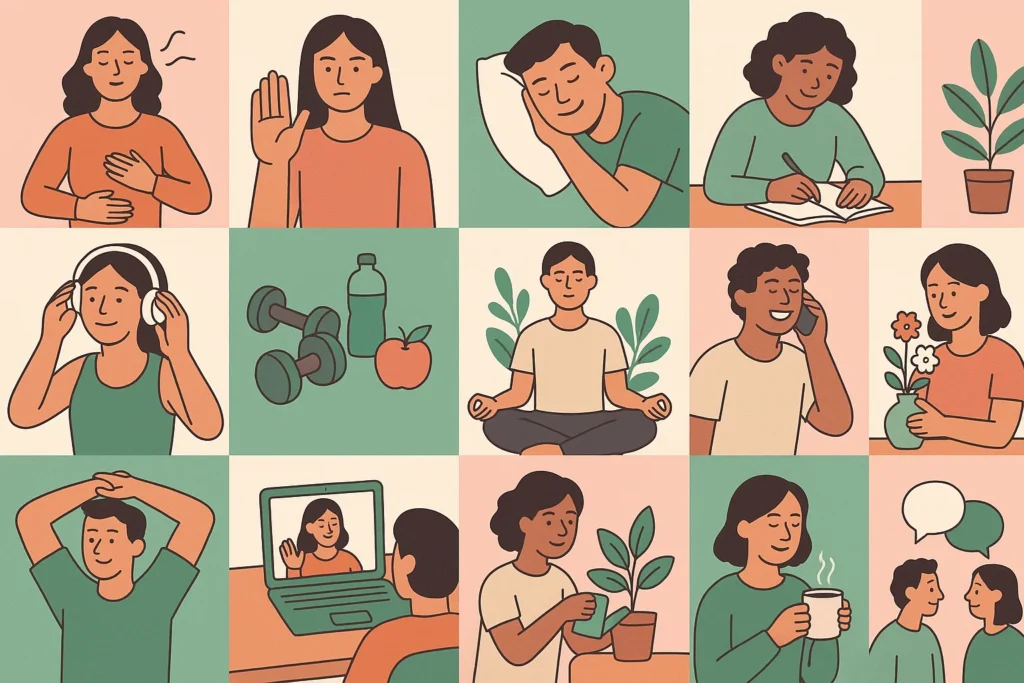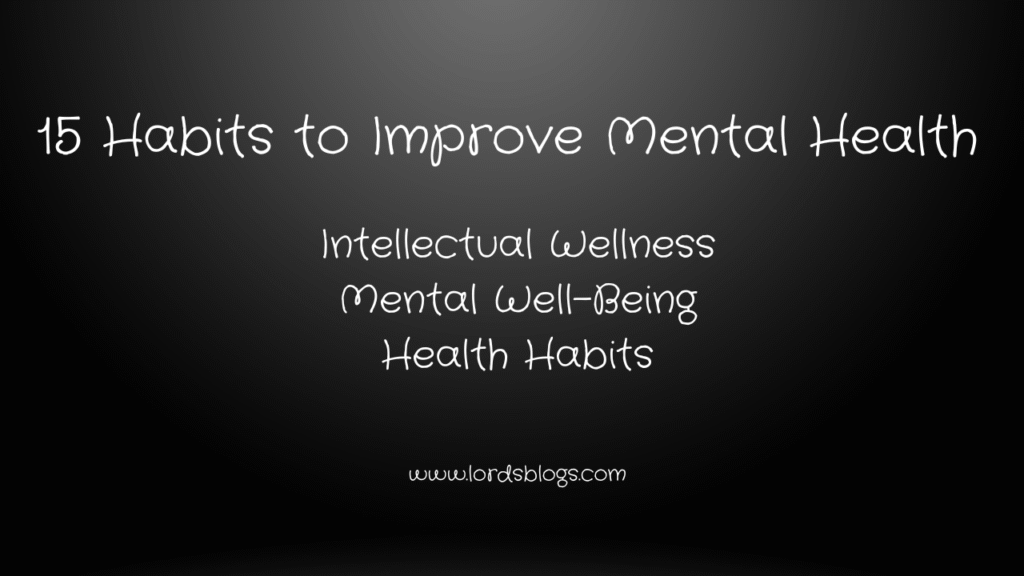🧠 Introduction:
Mental Health Can’t Wait — But There Is a Way Forward
Mental health challenges are more widespread than ever—stress, anxiety, and burnout affect millions of people daily. Yet, mental health is still one of the most neglected areas of well-being.
The problem? Many don’t know where or how to begin improving their emotional and psychological state.
The solution? Adopting simple, consistent habits that boost mental well-being and support intellectual wellness long-term.
This article explores:
- How to improve mental health with practical, daily strategies
- The top self-care tips that align with emotional resilience
- 15 proven activities to improve mental health backed by research
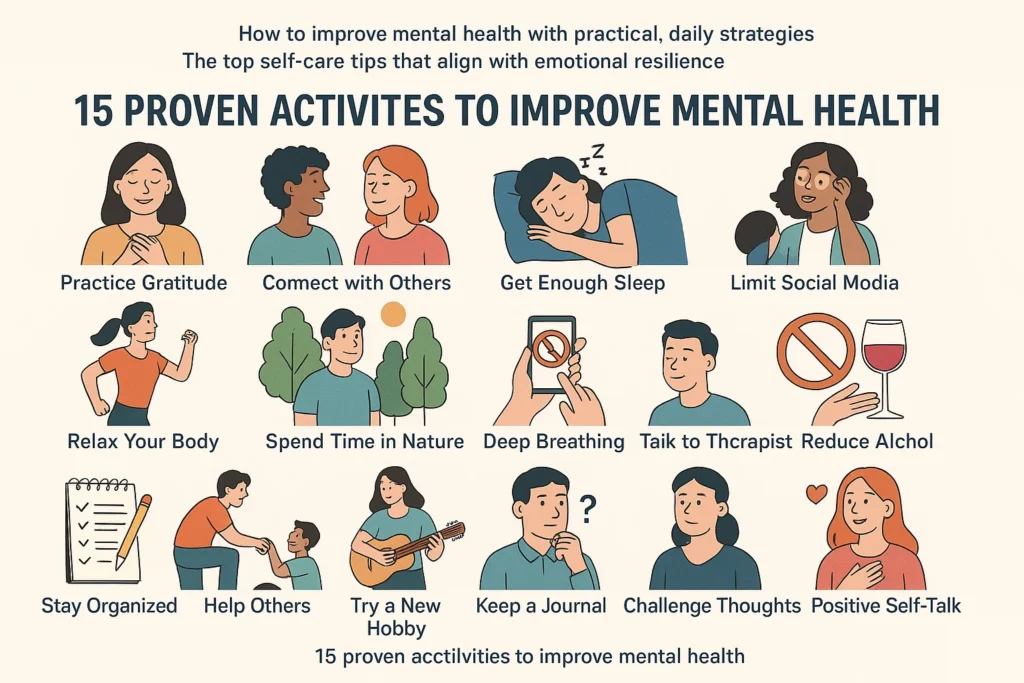
Let’s uncover small, manageable changes that can lead to lasting transformation.
Practice Daily Gratitude
Writing down three things you’re grateful for each day shifts your focus from lack to abundance. Gratitude rewires the brain to notice the positive, reducing anxiety and depressive thoughts.

Studies from UC Berkeley confirm that gratitude journaling significantly improves mood and long-term happiness [Source: Greater Good Science Center, 2023].
Mental Wellness Tips:
- Keep a bedside gratitude journal
- Set daily reminders to reflect on positives
- Use gratitude apps like “Presently” or “Gratitude”
Move Your Body — Even for 15 Minutes
Physical activity isn’t just about physical fitness. It’s one of the most powerful ways to improve mental health. Exercise releases endorphins, combats stress hormones, and improves self-image.

Mental Health Improvement Activities:
- Go for a brisk walk or bike ride
- Stretch or do yoga in the morning
- Join virtual dance or fitness classes
According to the Mayo Clinic, regular exercise reduces symptoms of depression and anxiety significantly [Source: Mayo Clinic, 2023].
Practice Mindfulness or Meditation
Mindfulness meditation teaches the brain to slow down and focus on the present. It reduces overthinking, improves decision-making, and increases emotional regulation.
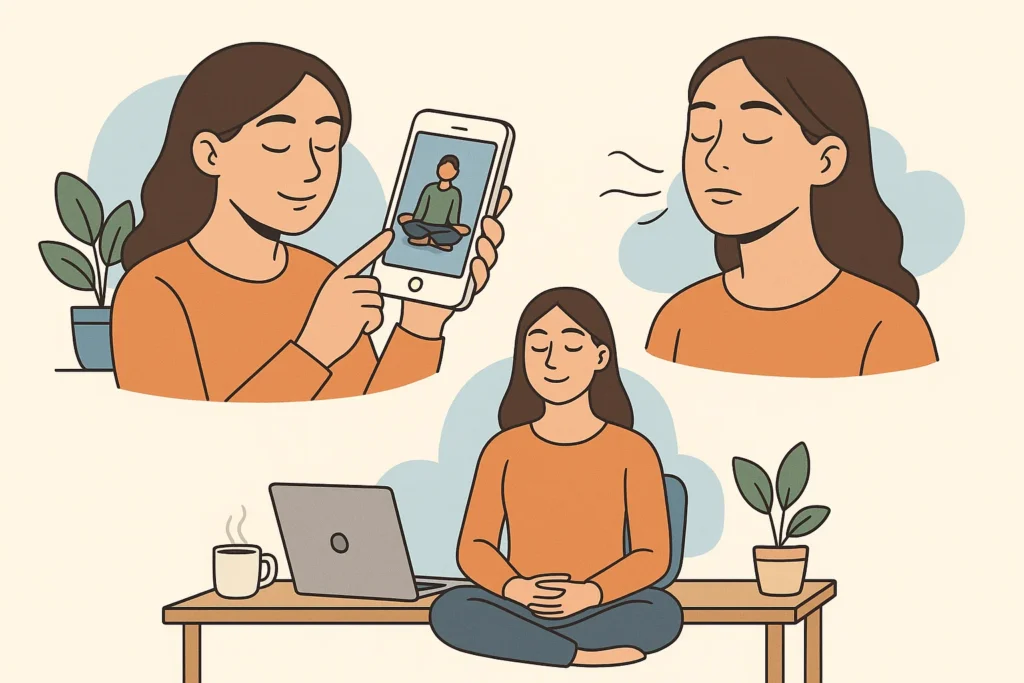
How to Improve Mental Health with Mindfulness:
- Try guided meditations using apps like Headspace or Insight Timer
- Practice mindful breathing for 5–10 minutes daily
- Incorporate meditation breaks into your workday
Harvard Medical School found mindfulness can physically change the brain’s structure in areas related to memory and empathy [Source: Harvard Health, 2023].
Establish a Digital Detox Routine
Overuse of digital devices and social media is a hidden threat to mental health. Constant scrolling fuels comparison, FOMO (fear of missing out), and overstimulation.
Selfcare Tips for Mental Health:
- Designate “no phone” hours before bed
- Unfollow toxic or triggering accounts
- Use screen time tracking to stay accountable
Digital minimalism is one of the most effective ways to self-improve emotionally and intellectually.

Nurture Meaningful Social Connections
Humans are wired for connection. Strong social ties have been linked to lower rates of depression and better mental function in older adults.
Activities to Improve Mental Health:
- Schedule weekly catch-ups with friends or family
- Join interest-based groups (online or offline)
- Participate in community volunteering
According to the American Psychological Association, social support is a key protective factor against mental illness [Source: APA, 2023].

Set Boundaries and Learn to Say No
Saying yes to everything leads to exhaustion. Boundary-setting empowers you to protect your time, energy, and emotional space.
Mental Mindset Shifts:
- Identify personal limits and communicate them clearly
- Schedule time for yourself without guilt
- Decline requests that conflict with your values or peace
This is a critical part of improving mental health and building a life aligned with your needs.
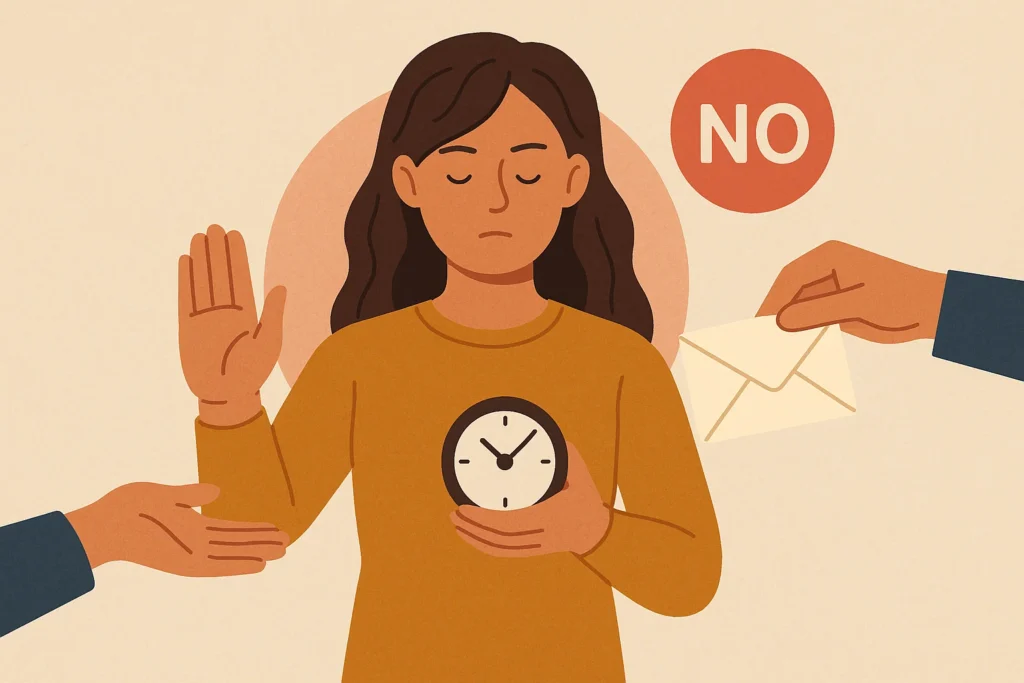
Fuel Your Brain with Nutrition
Brain health is deeply tied to gut health and nutrient intake. A balanced diet supports concentration, mood regulation, and mental clarity.
How to Improve Mental Health with Food:
- Eat omega-3-rich foods (salmon, flaxseed, walnuts)
- Reduce processed sugars and trans fats
- Stay hydrated—your brain is 75% water
A study in the journal Psychiatry Research found that diet quality correlates with depression risk [Source: Psychiatry Research, 2022].
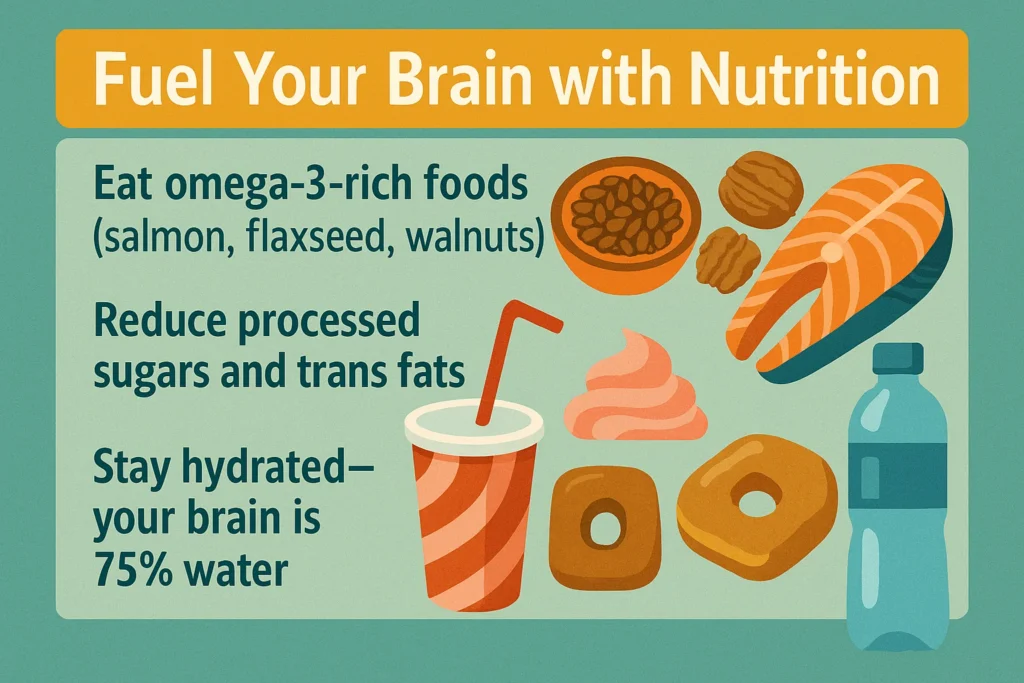
✅ Bonus Tips:
Other Daily Mental Wellness Habits to Try
- Journal your thoughts to process emotions
- Read intellectually stimulating books
- Create a calming morning routine
- Practice deep breathing exercises
- Listen to calming music or nature sounds
- Declutter your environment
- Set SMART (Specific, Measurable, Achievable, Relevant, Time-bound) goals
- Celebrate small wins regularly
Each of these habits contributes to mental health improvement and supports a healthy mental mindset for long-term success.
❓ (FAQ)
Q1: What are simple ways to improve mental health daily?
Activities like journaling, walking, limiting screen time, and practicing gratitude are simple yet effective daily strategies.
Q2: How long until these habits improve mental health?
Many people begin feeling more grounded and clear-headed within 1–2 weeks of consistent practice.
Q3: Can I improve mental health without therapy?
Yes, while therapy is beneficial, self-led mental wellness tips like the ones above are powerful tools to maintain and elevate mental well-being.
🎯 Final Thoughts:
Start Small, Stay Consistent
Improving mental health doesn’t require big leaps—just small, repeated steps. These 15 habits to improve mental health are accessible, science-backed, and life-changing when practiced regularly.
Whether it’s setting boundaries, practicing mindfulness, or staying socially connected, you have the power to take control of your intellectual wellness and mental well-being.
Start with one habit today—and feel the difference tomorrow.
